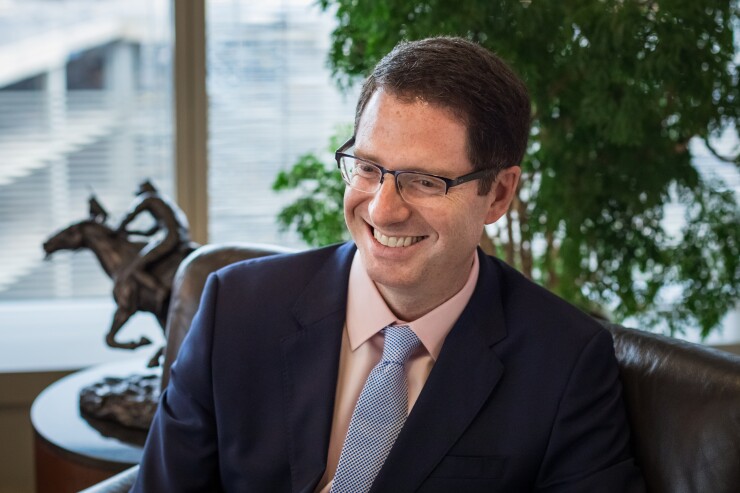WASHINGTON — Brian Brooks says that while acting comptroller of the currency during the Trump administration he urged the head of a major bank not to ban its customers from buying firearms with the bank’s cards.
Brooks declined to name the bank, calling it “one of the two largest banks in the United States.” Its CEO told him that bank officials were considering whether to bar firearms purchases with its credit or debit cards, Brooks said Monday in recounting the conversation.

The conversation happened “in the wake of Sandy Hook and some other things,” Brooks said. Brooks served as acting comptroller from late May 2020 to January 2021, well after the Sandy Hook shooting in 2012, but not long after the Virginia Beach and El Paso Walmart shootings in 2019, and amid a number of shootings that didn’t have more than 10 fatalities, excluding those of perpetrators.
The former regulator said he told the CEO that the bank shouldn’t dictate how consumers spend their money. Brooks shared the anecdote during a panel discussion about cryptocurrency regulation at the National Community Reinvestment Coalition Just Economy conference.
“It’s their own money. You can’t tell them what to buy if it doesn’t violate the law,” Brooks said. “What’s next, you don’t like me reading a right-wing magazine or a left-wing magazine?”
JPMorgan Chase and Bank of America have long been the country’s two largest banks by assets. A JPMorgan spokeswoman declined to comment when asked about Brooks’ remarks. Bank of America did not immediately respond to a request for comment.
Brooks’ remarks echo a debate about “fair access” that went on during his time as acting comptroller. Republicans have, for years, criticized Democrat-run administrations for what they say is picking sides on politically charged issues such as gun violence and climate change, and passing that pressure on to banks.
In a last-minute move before he left the Office of the Comptroller of the Currency, Brooks
Under the Biden administration, regulators
“I grew up in a rural area where kids went out hunting with their dads on the weekend — it was just a thing that we did,” Brooks said. “And a lot of Americans live in these places.”
Brooks spoke on a lively panel with Cornell University law professor Saule Omarova, a former hopeful for the top job at the OCC, about cryptocurrency regulation. Brooks drew a line between the topic of his conversation with a bank CEO and what he sees as a benefit of cryptocurrency: the lack of potential oversight and control by third parties.
“So that’s the other feature of the government control system — the power over the payment process, versus what crypto is all about,” he said. “Crypto is all about creating a user-controlled system.”
Omarova said that the anecdote with the bank CEO doesn’t show the infringement of government, but rather that the larger problem is corporations with large amounts of market power can undercut consumer choice.
“The concentration of the abuse of power is not only what governments do — private corporations do that all the time,” she said. “And that’s even worse, because that bank whose CEO you were talking about these issues with, right? That was not government; that was a private corporation.”
Allissa Kline contributed to this article.






